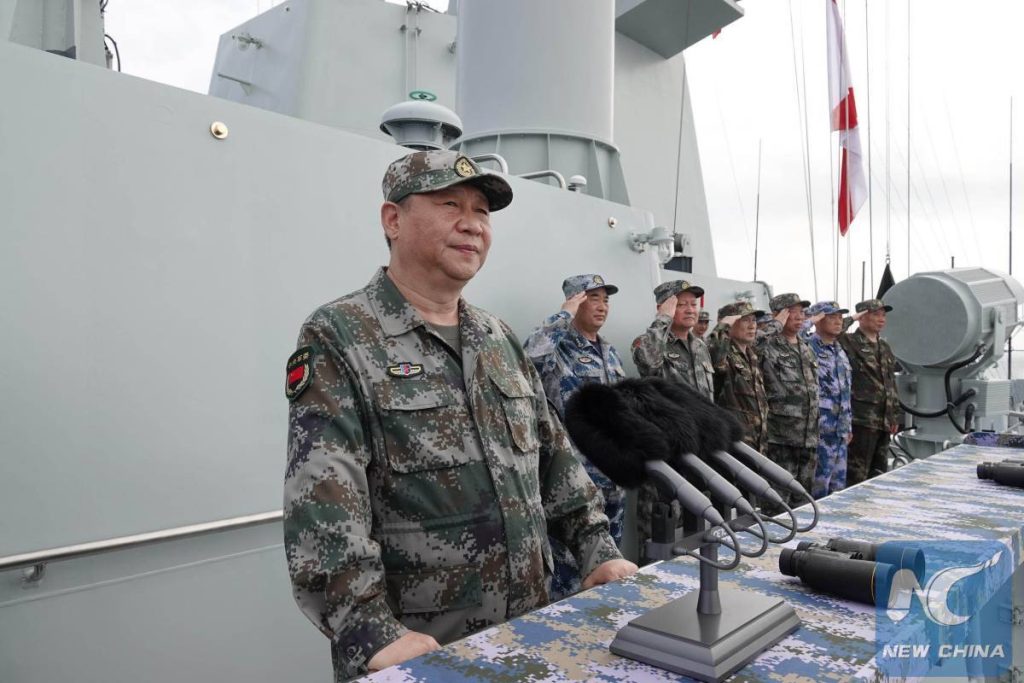The recent incidents involving the Rocket Army leadership have raised significant questions about corruption, security breaches, and the internal dynamics within the organisation. As the situation continues to unfold, further investigation and clarity are required to ascertain the truth behind these unsettling events
In recent events, a series of incidents involving leaders affiliated with the Chinese Communist Party (CCP) Rocket Army have surfaced, giving rise to concerns and speculation about the organization’s internal state. While official confirmation or denial of these reports by CCP authorities remains undisclosed, they have captured the attention and sparked discussions regarding potential instances of corruption and security breaches within the Rocket Army.
On July 6th, news emerged from Taiwan regarding the apparent suicide of Wu Guohua, the deputy commander of the CCP Rocket Force. Interestingly, this incident coincided with General Secretary Xi Jinping’s inspection of the Eastern Theater Command on the same day. However, confidential sources suggest that the cause of death was later revised to sudden cerebral haemorrhage by the People’s Liberation Army (PLA).

In another incident preceding Wu Guohua’s death, Li Yuchao, the current commander of the Chinese Rocket Force, was reportedly removed from his office on the morning of June 27th. Li Yuchao had assumed the role of commander in January of the previous year.
Media reports have also highlighted the investigation of Liu Guangbin, the former deputy commander of the Rocket Force and deputy chief of the Joint Staff Department of the Central Military Commission. In April, Liu Guangbin’s successor as deputy commander, whose identity remains undisclosed, was also taken away for investigation.
It is worth noting that the CCP has refrained from publicly acknowledging or refuting these incidents involving senior military officials. There have been suggestions that the party no longer announces investigations into senior generals in recent years. Furthermore, there have been allegations of corruption and information leaks among senior generals of the Rocket Army, as reported by Hong Kong news outlet Ming Pao.
Amidst these events, allegations have arisen regarding the leak of sensitive information about the CCP Rocket Force’s organisational structure. It is claimed that a lengthy 255-page report disclosing intricate details of the Rocket Force’s operations, from high-level command systems to logistics, was shared with the “China Aerospace Research Institute” (CASI) of the U.S. Air Force University.
These grave allegations have led to a purge within the esteemed ranks of the CCP Rocket Army. Xi Jinping had previously declared the Rocket Force as the core force for strategic deterrence and a crucial pillar of China’s pursuit of great power status. Military experts emphasise that the Rocket Force, previously known as the Second Artillery Corps, forms an essential part of China’s “nuclear triad” and possesses the capability to engage ground targets using medium and long-range missiles.
In the event of a conflict in the Taiwan Strait, the Rocket Force would bear primary responsibility for carrying out the initial offensive operations, targeting critical assets in Taiwan. Simultaneously, it would face considerable attention and potential attacks from the United States and Taiwan.
Sources within the Rocket Army suggest a sense of reluctance to engage in combat, coupled with substantial pressure from Xi Jinping. This has resulted in an atmosphere of fear and unstable morale within the army. Some individuals within the Rocket Army express reservations about Xi Jinping, adding further complexity to the situation.
Given the fear of war experienced by the traumatised Rocket Army personnel, it is plausible to consider that a few may have defied CCP authorities and leaked critical intelligence to the United States. These suspicions have likely contributed to the purging of officials suspected of involvement in such acts within the Rocket Army.
The recent incidents involving the Rocket Army leadership have raised significant questions about corruption, security breaches, and the internal dynamics within the organisation. As the situation continues to unfold, further investigation and clarity are required to ascertain the truth behind these unsettling events.

Leave a Reply